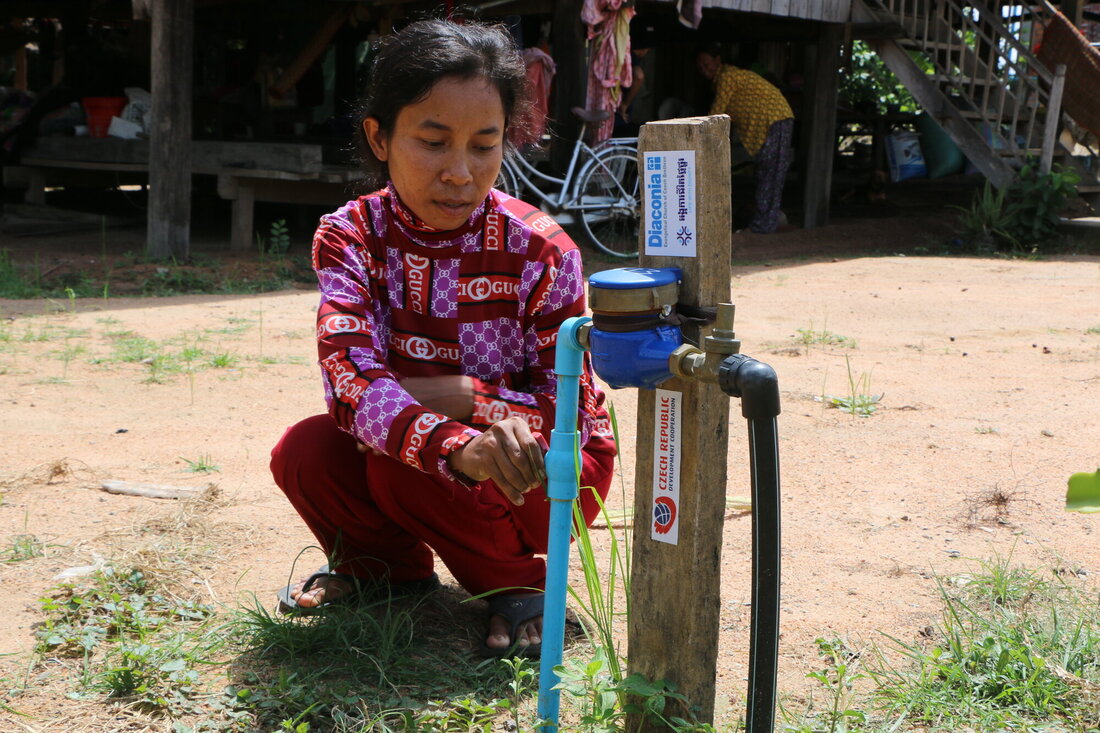Cambodia
We have been operating in Cambodia since 2013, where we have provided training and practical exercises for local farmers in Battambang province to improve the efficiency of agricultural practices and technologies. A turning point was the year 2017 when we set up our own office in the capital city of Phnom Penh and began working with a local NGO, Lutheran Hope Cambodia Organisation (previously Life with Dignity).
We expanded our previous experience to rural areas of Pursat province where we increased the resilience of local communities through training in Disaster Risk Reduction (DRR), particularly against floods and droughts. Our long-standing work has brought farmers modern know-how in crop cultivation and subsequent value addition. By diversifying their income, they can be more economically self-sufficient and more prepared for crop failures, floods or droughts.
Since 2020, we have been working to improve local infrastructure, particularly the availability and efficient management of drinking water and its resources. Similarly, we have been working to increase access to adequate sanitation facilities and menstrual products in Kampong Chhnang province. In 2021, we started a three-year project focusing on agriculture and food processing (mangoes, bananas, cucumbers, cabbage, pineapple, meat, fish) in Kampong Speu province, where we are working with 16 farmer cooperatives that bring together over 5,000 smallholder farmers, mostly women. In 2023, we followed up with a two-year cooperative digitalization project that facilitates the linking of demand and supply of agricultural crops.
In general, the synergy of working with the university and private sector is important to us and that is why we have involved Czech companies such as G-servis, Ekomonitor, Breberky and Holistic Solutions in our projects. We have also worked with the Czech University of Agriculture in Prague, Mendel University in Brno and the local Institute of Technology in Cambodia.
We would like to thank the Ministry of Foreign Affairs of the Czech Republic, the Czech Development Agency and the UNDP Challenge Fund for their support of our projects in rural Cambodia.
